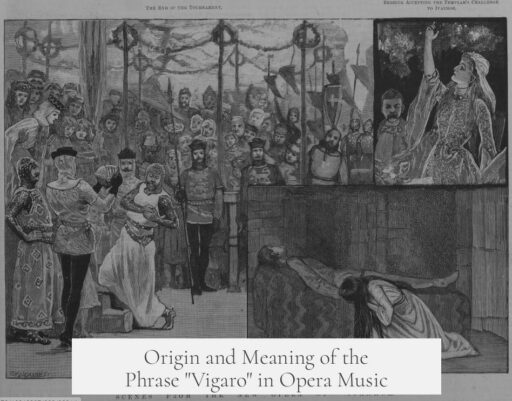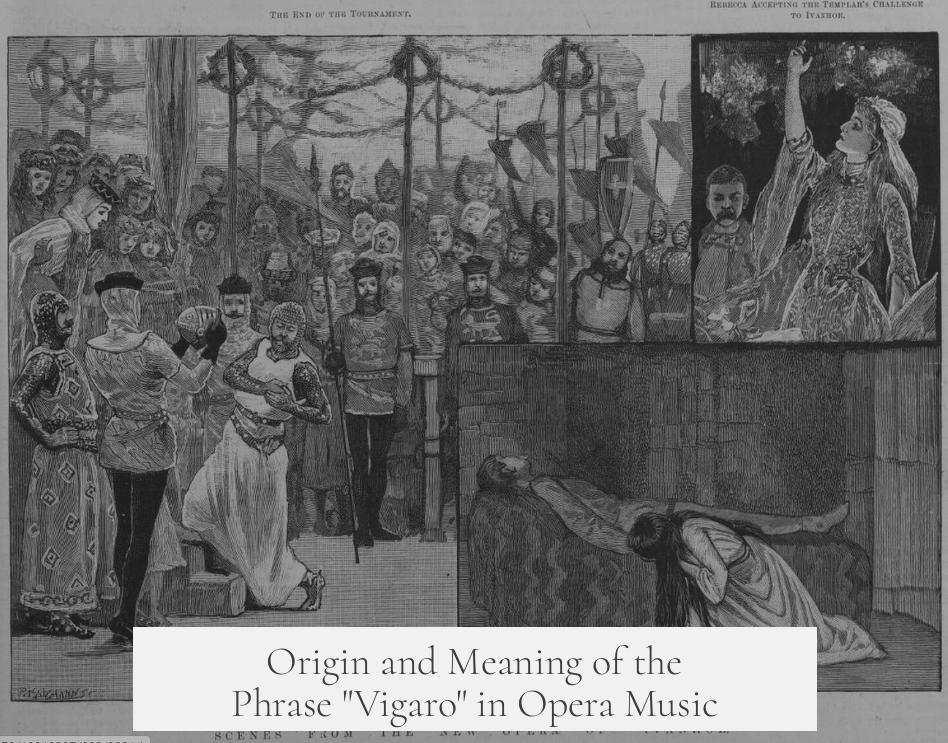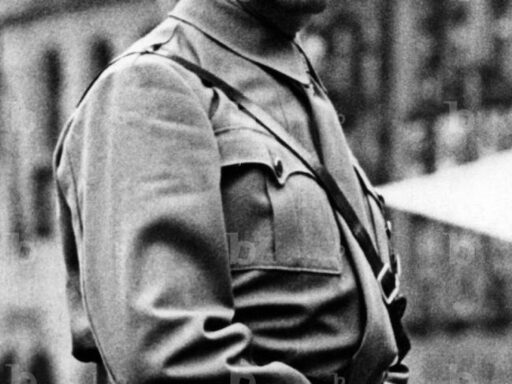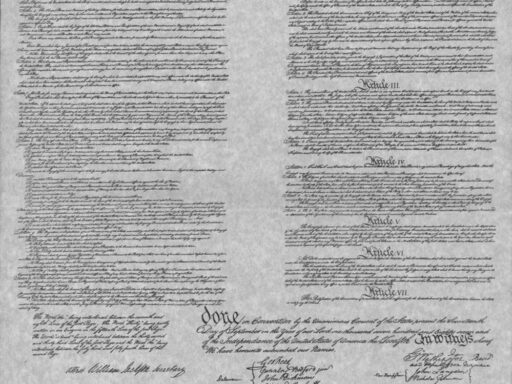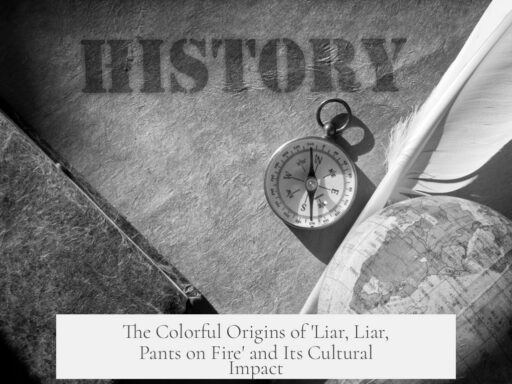The phrase “vigaro” does not have an established origin or meaning in opera music. It is not a recognized term, lyric, or character within traditional opera literature or repertoire. Instead, “vigaro” likely functions as a stereotypical or mimicry vocalization—an imitation of opera style rather than an authentic phrase.
In opera, well-known terms or names like “Figaro” hold significant weight. “Figaro” is famous as a character in Rossini’s Barber of Seville and Mozart’s The Marriage of Figaro. The phrase “Figaro!” famously appears in the baritone aria “Largo al factotum” from Rossini’s Barber of Seville, where the character Figaro enthusiastically sings his name as if called upon by various people, symbolizing his busy and resourceful personality.
In contrast, “vigaro” does not appear in any notable opera text or libretto. Its presence is largely anecdotal or based on phonetic imitation. This confusion arises mainly because “vigaro” sounds similar to “Figaro,” leading some listeners or performers, especially outside formal opera circles, to mishear or unconsciously create the term as a generic operatic-sounding word.
Several factors fuel the misunderstanding or use of “vigaro” in operatic mimicking:
- It echoes the pattern of repetitive, emphatic syllables common in opera singing and arias.
- It acts as a placeholder vocalization reflecting the exuberance and flair typical of opera.
- There is some online content (such as “Marriage of Vigaro Overture” listings) that likely misspell “Marriage of Figaro,” which may propagate the term’s mistaken use.
The lack of an official definition or placement in the opera canon further disqualifies “vigaro” as a meaningful term. Dictionaries and translation resources sometimes capture “vigaro” or similar-sounding words, but these meanings are unrelated to opera. For example, Portuguese words like “vigário” (meaning “vicar”) and “vigarista” (meaning “con man”) bear no connection to operatic contexts or the original Italian operas from which famous characters like Figaro emerge.
Traditional opera is rich with Italian text and recognizable character names. Among them, Figaro stands out as emblematic due to his central role in multiple operas and the popularity of his arias. Unlike “vigaro,” “Figaro” has a documented history:
| Aspect | Figaro | Vigaro |
|---|---|---|
| Opera | Rossini’s Barber of Seville, Mozart’s The Marriage of Figaro | No authentic opera source |
| Meaning | Character’s name | No established meaning |
| Usage | Baritone aria “Largo al factotum” | Stereotypical vocalization or imitation |
| Recognizability | Well-known aria line, cultural icon | Confusion or caricature |
“Figaro!” is memorable and widely recognized partly because the aria suits many male voices and its Italian is straightforward, making it accessible to a broad audience. It even features in popular culture, as in cartoons like Bugs Bunny’s parody performances. These factors considerably enhance its cultural footprint.
Conversely, “vigaro” does not enjoy such recognition or historical backing. It may arise when non-experts attempt to evoke an “operatic” feel or in humorous or parodic scenes requiring generic opera-style exclamations.
In summary:
- “Vigaro” does not originate from opera music or serve as a recognized operatic phrase.
- The term is likely a mishearing, misspelling, or improvised vocalization inspired by “Figaro.”
- “Figaro” is a central character in prominent operas with a famous aria featuring his name repeatedly.
- Confusions may arise from misspelled opera titles or parody attempts to mimic operatic sounds.
- No authoritative opera source or musicological reference confirms “vigaro” as authentic.
What is the phrase “vigaro” in opera music?
“Vigaro” is not a formal phrase in opera. It often serves as a stereotypical vocal sound used to mimic opera style but lacks a clear meaning or origin in actual operatic works.
Where does the confusion between “vigaro” and “Figaro” come from?
“Vigaro” may be a mishearing of “Figaro,” the famous character from Mozart’s *The Marriage of Figaro* and Rossini’s *Barber of Seville*. “Figaro” is a well-known opera name, while “vigaro” is not.
Does the phrase “vigaro” appear in any famous operas or arias?
No. The phrase “vigaro” does not appear in classical opera librettos or arias. It is mainly an invented or mistaken lyric often used to sound operatic without meaning.
Why do people associate “vigaro” with opera if it lacks meaning?
“Vigaro” sounds like typical operatic vocalizations. It is sometimes used in parodies or informal singing to evoke opera style, relying on sound rather than actual words.
Is there a link between “vigaro” and “Marriage of Figaro”?
References to “Marriage of Vigaro” are likely misspellings or misnomers of Mozart’s *The Marriage of Figaro*. The similarity in sound may cause confusion but “vigaro” itself is unrelated to the opera.
Do dictionaries or translations give meaning to “vigaro”?
Dictionaries list “vigaro” but without meaning linked to opera. Some similar words in other languages mean things unrelated to music, showing “vigaro” has no operatic definition.
